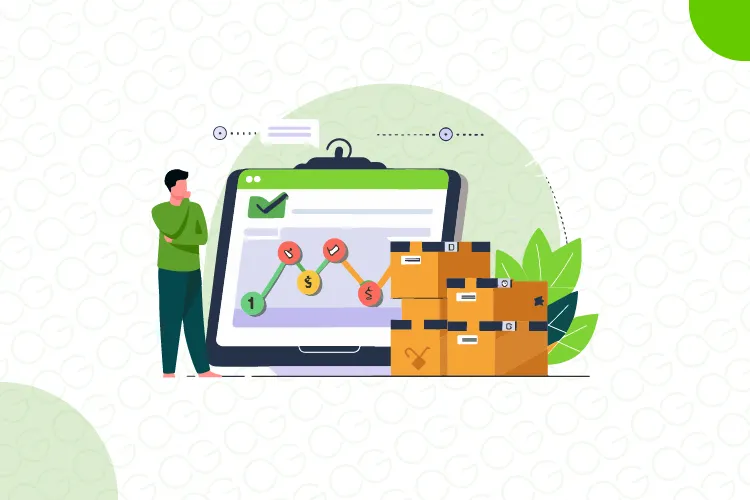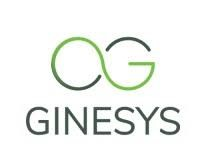Modern Solutions to Common Challenges in Retail Procurement Management

Procurement is one of the most critical functions in a retail business. Retailers need to identify customer needs, analyze retail market trends, choose relevant vendors, manage the entire procurement cycle, and much more. Processes such as purchase order management, contract management, vendor management, goods and services receipt management, and the like are involved in the procurement cycle. These processes are very complex and require a high level of accuracy. Retailers come across various challenges during procurement.
In this article, we will share a few challenges in retail procurement management that retailers face and ways in which a technological solution like Ginesys ERP can help tackle these problems using modern tools and integrations.

Discover how Ginesys ERP can optimize your retail procurement processes with seamless automation.
1. Supply Risk: Late Deliveries or Partial Deliveries
Supply risk is one of the significant challenges in retail procurement management that organizations often face. Risks such as fraudulence, shipment damage/loss, cost or quality tampering, and the like are a few among the numerous risks associated with any supply chain. Retailers also need to adhere to policies and government laws for procuring products from multiple vendors.
To mitigate these challenges, ERP solutions like Ginesys leverage the integration of supply chain management software such as Digivend by Supplymint. One powerful feature is Advanced Shipment Notifications (ASN). Here's how it helps:
- Timely Updates on Shipments: ASN enables vendors to notify retailers when purchase orders (POs) are completely ready to ship.
- Streamlined Goods Processing: Goods marked as "OK to receive" by retailers are matched with invoices, allowing faster processing at warehouses.
- Accurate Scheduling: Retailers know precisely when shipments will arrive, helping with resource planning.
Such features significantly reduce uncertainty and ensure that goods are delivered in the correct quantity, on time, and with minimized risks.
2. Ad-Hoc Purchases
Ad-hoc purchases are unplanned transactions made outside the predefined procurement policies. Employees might make unauthorized purchases, or vendors may deliver extra stock to warehouses without approval. These situations not only lead to unrecorded expenses but also result in inventory mismanagement and reduced ROI.
Ginesys ERP helps retailers enforce discipline in procurement through robust purchase order (PO) management features:
- Clear Item and Rate Specification: POs clearly outline product details, quantities, and negotiated prices, minimizing unauthorized expenditures.
- Spend Control: Retailers can set predefined budgets for different product categories, ensuring strict financial oversight.
- Automated Approvals: The system routes POs through an automated approval workflow, preventing unauthorized ad-hoc purchases.
By maintaining clear records and visibility, Ginesys ensures that all purchases are tracked and accounted for.

3. Goods Not Meeting Expected or Agreed Quality
Receiving goods that do not meet the expected quality standards is a common procurement challenge. Substandard products can severely impact customer satisfaction and increase return rates.
To address this, retailers should implement a quality check process at the point of receiving goods:
- Marking Defective Goods: Ginesys ERP allows warehouse staff to mark defective goods during quality checks and return them to vendors.
- Randomized Sampling: Even if checking every unit is impractical, the system facilitates randomized quality checks to ensure consistency.
- Improved Vendor Accountability: Defective goods are recorded in the system, enabling retailers to track vendor performance and enforce quality standards.
These processes save retailers significant time and money by preventing low-quality products from reaching store shelves.

Ensure every product meets your quality standards. Learn how Ginesys ERP helps retailers enforce better vendor accountability.
4. Poor Planning of Purchases
Retailers often face challenges due to inaccurate data during procurement planning. Overestimating or underestimating inventory needs leads to overstocking or stockouts, both of which negatively impact operations.
Ginesys ERP provides advanced planning tools powered by data analytics:
- Sales Trends Analysis: The system uses historical data to predict demand based on seasons, festivals, and other factors.
- Open-to-Buy (OTB): OTB tools ensure that purchase quantities align with inventory goals and sales forecasts.
- Sales Target Integration: By comparing actual sales trends with sales targets, retailers can make data-driven purchasing decisions.
With accurate insights at their fingertips, retailers can avoid unnecessary expenditures and ensure optimal stock levels.
5. Supplier-Related Issues
Managing multiple suppliers adds complexity to procurement. Tracking vendor performance, managing contracts, and ensuring timely deliveries can be challenging.
Ginesys ERP, integrated with Digivend, simplifies vendor management through a centralized vendor portal:
- Comprehensive Vendor Records: Retailers can store all vendor data, including past transactions, performance metrics, and contact details.
- Automated Vendor Interactions: Vendors can upload shipment data, invoices, and compliance documents directly to the portal, reducing manual communication.
- Vendor Performance Monitoring: The system tracks delivery timelines, quality issues, and other metrics, enabling retailers to choose reliable suppliers.
This streamlined approach fosters better supplier relationships and improves procurement efficiency.
6. Inventory Visibility and Real-Time Updates
In modern retail, maintaining real-time inventory visibility is essential for effective procurement. Lack of visibility leads to overordering or underordering, resulting in financial and operational inefficiencies.
Ginesys ERP provides end-to-end visibility through its real-time inventory management system:
- Centralized Dashboard: Retailers can view inventory levels across multiple locations from a single interface.
- Automated Reordering: The system triggers reorder notifications based on predefined stock thresholds.
- Cross-Channel Sync: For omnichannel retailers, Ginesys ensures inventory data is synchronized across online and offline channels.
With these tools, retailers can optimize stock levels and reduce carrying costs.

Get real-time inventory insights at your fingertips! See how Ginesys ERP enhances stock management.
7. Integration of Modern Technologies
Modern technologies like Artificial Intelligence (AI), Machine Learning (ML), and Internet of Things (IoT) are transforming retail procurement:
- AI-Powered Forecasting: Ginesys uses AI to predict demand trends and optimize procurement schedules.
- IoT-Enabled Inventory Tracking: IoT devices provide real-time updates on stock movements, improving accuracy.
- Blockchain for Transparency: Blockchain integration ensures transparency in vendor transactions, reducing fraud risks.
By leveraging these technologies, Ginesys enables retailers to stay ahead in a competitive market.
Ginesys ERP: The Future of Retail Procurement
Technology solutions like Ginesys ERP help retailers overcome retail procurement challenges by providing a centralized platform for managing end-to-end procurement processes. Key features include:
- Automated Procurement Workflows: Reduces manual effort and ensures compliance with procurement policies.
- Seamless Integration: Connects with tools like Digivend for advanced supply chain management.
- Cloud-Based Data Storage: Ensures secure and scalable access to procurement data.
- Vendor Self-Service: Vendors can access a dedicated portal for streamlined communication and document uploads.
Additionally, Ginesys offers advanced analytics dashboards, helping retailers visualize procurement performance and identify improvement areas.
Benefits of Ginesys for Retailers
By adopting Ginesys ERP, retailers can achieve the following benefits:
- Cost Efficiency: Reduced procurement costs through better planning and spend control.
- Improved Accuracy: Minimized errors in order processing and vendor management.
- Enhanced Speed: Shorter procurement cycles due to automation and real-time updates.
- Stronger Supplier Relationships: Transparent interactions and performance tracking foster trust.
Scalability: Suitable for small retailers and large chains alike, Ginesys adapts to business growth.

Plan smarter, stock better. Leverage data-driven procurement with Ginesys ERP.
Retail procurement management is a complex process that requires precision, planning, and efficiency. Challenges such as supply risks, ad-hoc purchases, quality issues, and vendor management can significantly impact a retailer's profitability.
However, with advanced ERP solutions like Ginesys, these challenges can be effectively mitigated. By integrating modern technologies, automating workflows, and providing real-time insights, Ginesys empowers retailers to streamline their procurement processes and drive sustainable growth.
As retail continues to evolve, investing in robust procurement management tools will be critical for businesses to stay competitive and meet customer expectations. With Ginesys ERP, retailers can confidently navigate these challenges and embrace the future of retail procurement. Contact Ginesys today or book a demo to see how it can transform your procurement process.
